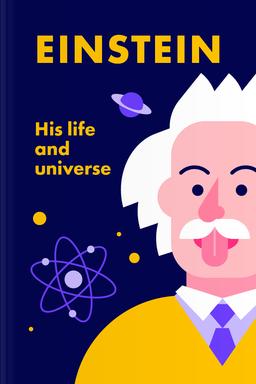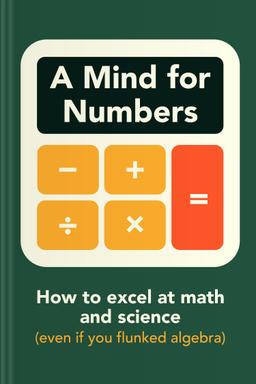What is Naked Statistics about?
This engaging book demystifies statistics, presenting complex concepts in a relatable way. Through anecdotes and real-world examples, it reveals the power and utility of data in everyday life. Readers will learn to think critically about numbers and uncover the truth behind them, making statistics accessible and enjoyable. Emphasizing practical applications, it strips away the fear often associated with data, empowering readers to interpret the world through a statistical lens.
Who should read Naked Statistics
- Students seeking to understand statistics intuitively.
- Professionals needing data analysis for decision-making.
- General readers interested in demystifying statistics.
What is Einstein about?
This captivating biography delves into the life of one of history's greatest scientists, exploring Albert Einstein's groundbreaking contributions to physics and the tumultuous events that shaped his personal journey. Through rich storytelling, it illuminates his complex character, including his passions, struggles, and the revolutionary ideas that transformed our understanding of time and space. The narrative intertwines scientific concepts with personal anecdotes, offering readers an intimate portrait of a genius.
Who should read Einstein
- Science enthusiasts seeking to understand Einstein's genius.
- History buffs interested in the life of a legend.
- Young readers inspired by revolutionary thinkers' biographies.
What is Hidden Figures about?
This book reveals the pivotal yet overlooked contributions of African American women mathematicians at NASA during the Space Race. It narrates their struggles against racial and gender discrimination, showcasing their brilliance as they played crucial roles in launching astronauts into space. Through compelling personal stories and historical context, it highlights their resilience and serves as an inspiring testament to the power of perseverance and intellect.
Who should read Hidden Figures
- History buffs interested in the space race.
- STEM enthusiasts seeking diverse role models.
- Readers passionate about women's empowerment and inclusion.
What is A Mind for Numbers about?
This insightful guide empowers readers to enhance their mathematical and scientific skills through effective learning techniques. By blending cognitive science with practical strategies, it reveals how to tackle challenging concepts, overcome procrastination, and develop a growth mindset. With engaging anecdotes and exercises, it provides tools to help students and professionals alike excel in STEM fields, fostering a deeper understanding and appreciation for numbers and analytical thinking.
Who should read A Mind for Numbers
- Students struggling with math and science subjects.
- Educators seeking innovative teaching methods in STEM.
- Lifelong learners wanting to improve analytical skills.
What is What If? Serious Scientific Answers to Absurd Hypothetical Questions about?
This entertaining book tackles bizarre hypothetical scenarios with scientific rigor and humor. Using illustrations and witty explanations, the author explores questions like the feasibility of giant robots or the implications of swimming in lava. Each chapter combines imaginative thought experiments with real scientific principles, making complex ideas accessible and engaging. It's a delightful blend of science and absurdity, perfect for curious minds eager to explore the 'what ifs' of life.
Who should read What If? Serious Scientific Answers to Absurd Hypothetical Questions
- Curious minds seeking scientific explanations for silly questions.
- Fans of humor blended with solid scientific insights.
- Anyone interested in fun, absurdity, and critical thinking.




